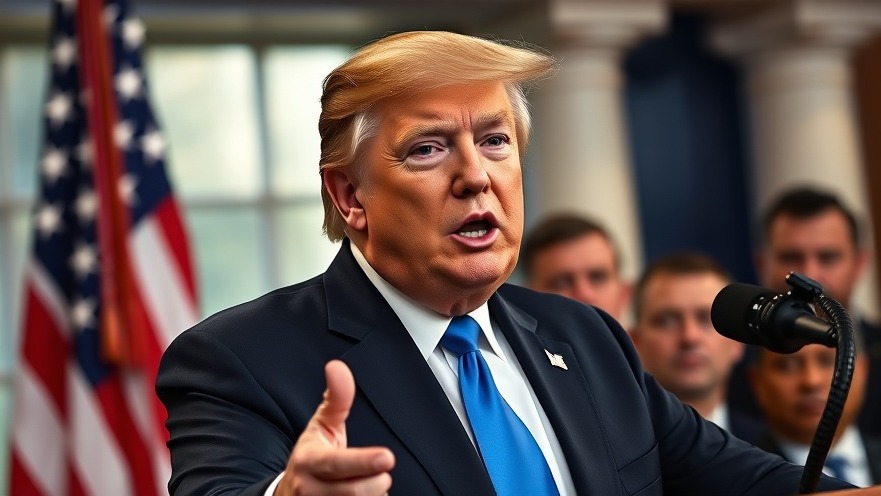
Trump's Ceasefire Perspective: What It Means for Israel and Hamas
In a significant development this week, President Trump announced that Israel has purportedly accepted conditions for a two-month ceasefire in its ongoing conflict with Hamas. This revelation, shared by the former president on his Truth Social platform, holds potential implications not only for the regions involved but also for international relations as a whole.
Trump's announcement comes amid a complex backdrop of proposed peace negotiations. Levels of skepticism remain as neither Hamas nor Israel has publicly confirmed acceptance of the ceasefire terms. The suggested timeline for implementing this ceasefire appears to aim for a swift resolution—possibly within a week.
The Role of Mediators: Qatar and Egypt
The involvement of Qatar and Egypt as mediators further complicates the landscape of these negotiations. Both countries have previously played vital roles in facilitating dialogue between Israel and Hamas. Their engagement suggests that a potential ceasefire deal may hinge on broader diplomatic efforts that include multiple stakeholders in the region. Amid escalating violence—with Israeli operations intensifying in Gaza—these negotiations are framed as vital yet precarious.
The Current State of the Conflict
The conflict erupted dramatically in October 2023, triggered by a large-scale attack by Hamas that resulted in significant casualties in Israel. In retaliation, Israel launched an extensive military operation in Gaza, leading to devastating losses reported by the Hamas-run Gaza Health Ministry, which claims over 56,000 deaths to date. Clearly, both sides are entrenched in a cycle of violence fueled by a complex mixture of historical grievances.
Previous Attempts at Ceasefire
Historically, ceasefire attempts between Israel and Hamas have faltered, often stalling at the negotiation table. For instance, Trump’s envoy, Steve Witkoff, attempted to broker a ceasefire in late May that hinged on mutual concessions concerning hostages. The failure of those negotiations highlights the persistent challenges that continue to plague discussions for lasting peace.
Public and Political Reactions
Public sentiment regarding the proposed ceasefire remains tentative. Analysts speculate on how the announcement impacts the perception of Trump’s influence in Middle Eastern politics, especially as he prepares for a meeting with Israeli Prime Minister Benjamin Netanyahu. While some view Trump’s intervention as potentially beneficial, others are cautious, wary of the complicated dynamics at play.
Future Implications and Predictions
Looking ahead, should the ceasefire take hold, its success or failure will play a critical role in shaping the future dynamics within the region. With Netanyahu maintaining a strong stance against Hamas, backed by popular support within Israel, any seeming concessions could be contentious. Conversely, Hamas’s willingness to engage may influence its standing among Palestinians, especially as humanitarian conditions in Gaza worsen.
Conclusion: The Importance of Comprehensive Solutions
Ultimately, whether this latest ceasefire proposal will pave the way for lasting peace or simply serve as a temporary respite remains to be seen. The intricate web of political, social, and military factors involved emphasizes the need for a well-rounded approach to peace—one that prioritizes dialogues backed by humanitarian initiatives and offers comprehensive support for both sides. As information continues to unfold, staying updated on breaking news surrounding these developments is essential.
For those interested in exploring more on Middle Eastern relations and international diplomacy, consider following reputable news sources for real-time updates. Engaging with multiple perspectives can offer broader insights into the complexities of these situations.
 Add Element
Add Element  Add Row
Add Row 



Write A Comment